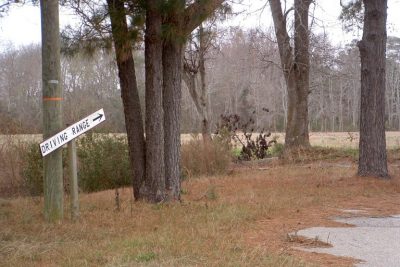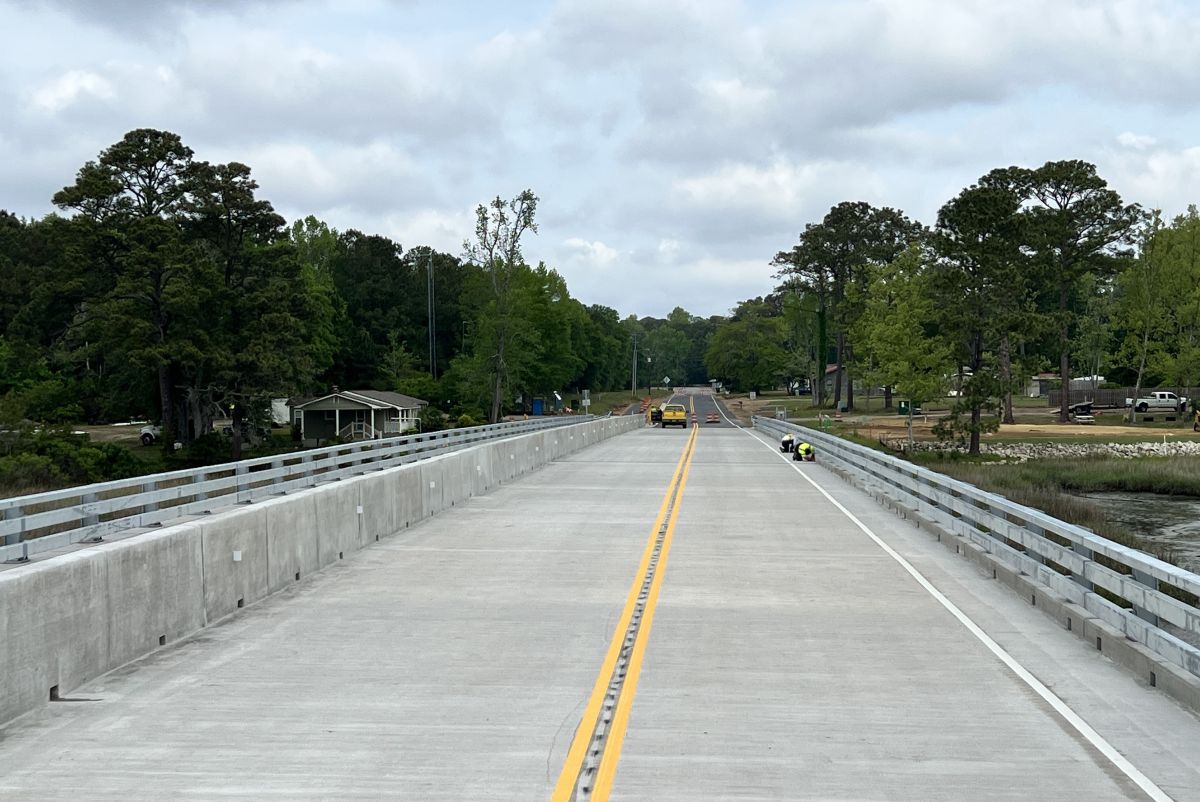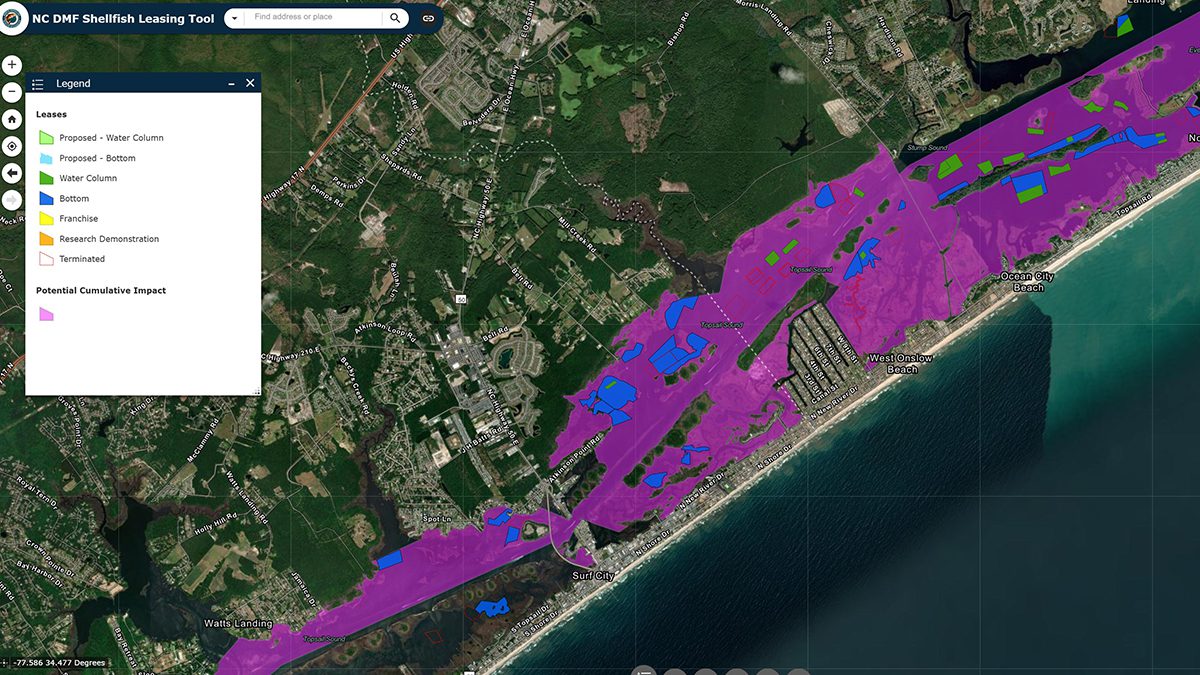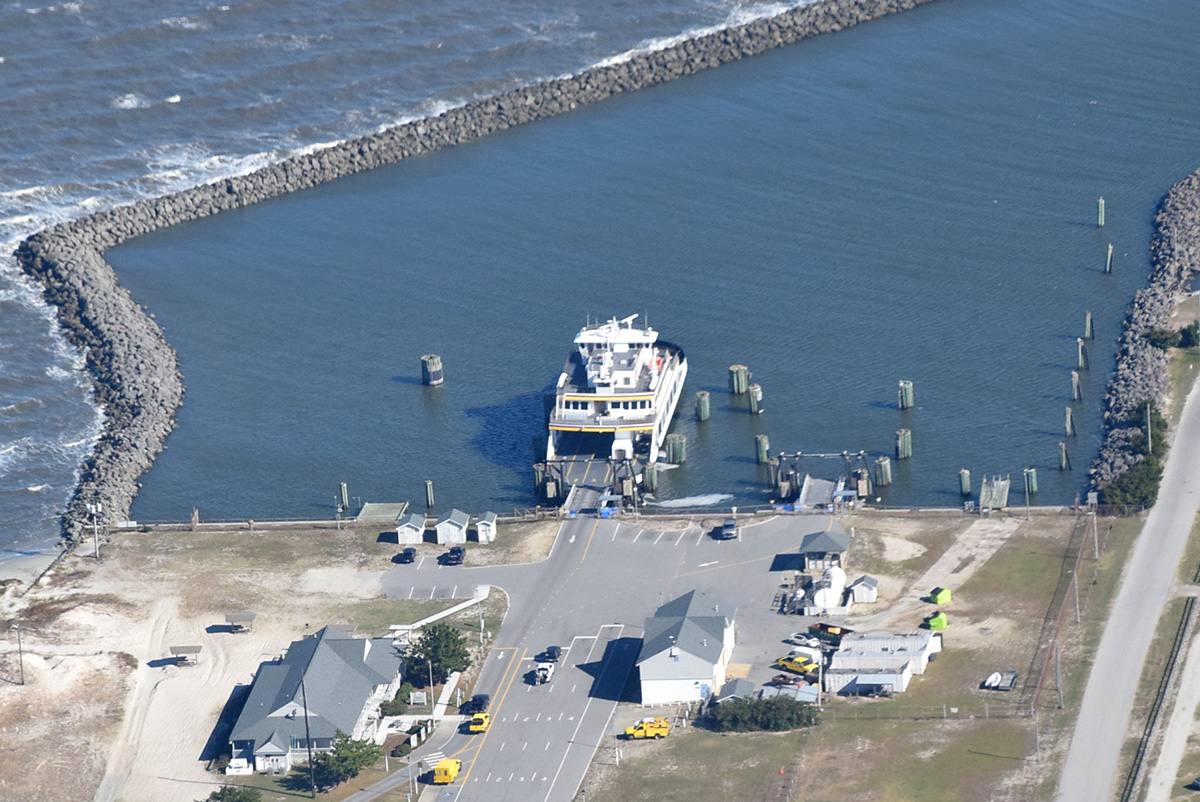
Reprinted from Outer Banks Voice
After two years of wrangling with Currituck County and the courts, Ecoplexus, a company that develops solar farms, finally has a use permit allowing it to replace a defunct golf course in Grandy with an array of solar panels.
Supporter Spotlight
Currituck County Board of Commissioners voted unanimously Monday to approve the use permit for the planned solar farm, which will be at the site of the old Goose Creek Golf Course.
A ruling in March by the North Carolina Court of Appeals mandated that the board issue the permit, overturning a previous ruling by Currituck Superior Court. The project has been adamantly opposed by neighbors of the golf course, and a few Grandy residents spoke out against it again Monday.
However, county attorney Ike McCree and members of the board made it clear that the county didn’t have a choice.
“There isn’t an option that the board of commissioners has to approve or disapprove this project,” Chairman Bobby Hanig said during Monday’s meeting.
“We have to approve this project. All we can do is put limitations on what the project can be, and what they have to do to conform,” he added.

The Court of Appeals’ decision allowed the board to add certain conditions, which were included in Commissioner Paul Beaumont’s lengthy motion to approve he permit.
Supporter Spotlight
Those conditions include the following:
- Setbacks, or the distance from neighboring property lines, must be 300 feet from residential property, and 100 feet from commercial property.
- The maximum height of the solar panels will be 15 feet.
- The property must be screened from view between the solar farm and residential property by shrubs, canopy trees and understory trees.
- Less opaque screening may be used along other neighboring property lines.
- Grass and weeds must be kept below 24 inches tall.
- The panels must be constructed to withstand high winds from heavy storms and hurricanes.
- Although not a requirement, Ecoplexus plans to create a pollinator garden between the solar farm and the commercial property facing Carotoke Highway.
A major concern has been the disposal of the solar panels once the farm is taken out of commission. The permit requires that the equipment have at least a 115 percent salvage value, and the company must provide a decommissioning plan and a decommissioning performance guarantee prior to receiving a building permit.
In addition, certain drainage issues must be addressed with the county engineer. Parts of the golf course and adjacent properties are already subject to flooding during storms, but the company may not be able to remedy flooding on adjacent properties if it’s not caused directly by the solar farm.

Kim Hamby, an engineer for Ecoplexus, told commissioners that while she couldn’t promise that the work done by Ecoplexus would improve all of the drainage issues in the area as some are unrelated to the golf course, she could promise that the solar farm wouldn’t make it worse.
Because the company’s plans include reducing the amount of impervious surface, such as pavement, on the grounds of the solar farm, Ecoplexus won’t be required to comply with the county’s stormwater manual.
Hard surfaces will cover less than 10 percent of the site, County Planner Laurie LoCicero explained, which means the site doesn’t have to meet the requirements in the manual.
One way the company will reduce the amount of impervious surface, which doesn’t allow water to soak into the ground, is by taking up 2,200 square feet of cart paths, LoCicero said.
One of the biggest complaints raised by the neighbors of the county’s first solar farm, near Moyock, regarded construction noise and dust. The concerns raised about that project, a 2,000-acre solar farm that is the largest in the eastern United States, led to a two-month moratorium on new solar projects in January 2017.
Ecoplexus has agreed to take several steps to reduce the amount of construction noise and dust generated by the project in Grandy.
Construction will be limited to between 7 a.m. and 8 p.m. said Mike Fox, an attorney representing Ecoplexus, and the buffer will be in place before construction begins. Dust from the project will be minimized.
Fox couldn’t promise that construction would take place only on weekdays but said the company would limit construction on the weekend to times when it was necessary to meet a deadline.

Commissioner Paul Beaumont was concerned about the noise generated, sometimes for eight hours a day, when pilings are being pounded into the earth. As a compromise, Fox said pilings wouldn’t be driven on the weekends.
“We will be a good neighbor,” Fox said. “Obviously if anyone has any concerns, let us know, and we will take care of them.”
LoCicero pointed out that working after hours would be a code violation, and if the company couldn’t adhere to the agreement, it could be fined.
McRee added that the county could place a stop-work order on construction if the company doesn’t comply with the conditions of the use permit.
Ecoplexus first applied for a use permit in April 2016. During several community meetings and public hearings, neighbors asserted that the solar farm didn’t belong in the residential neighborhood, would lower their property values, increase flooding and possibly pose public safety hazards.
In May 2016 the board voted to deny the permit. The board found that the solar farm was detrimental to public safety and wasn’t in harmony with the surrounding area, county McRee said during Monday’s meeting.
The company appealed the decision to Currituck Superior Court, which sided with the county. Ecoplexus appealed that decision to the North Carolina Court of Appeals, which overturned the Superior Court’s ruling.
This story is provided courtesy of the Outer Banks Voice, a digital newspaper covering the Outer Banks. Coastal Review Online is partnering with the Voice to provide readers with more environmental and lifestyle stories of interest about our coast.







